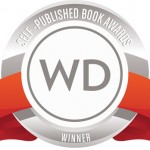I’m ready for human cloning (on a temporary basis, that is). I think writers need to have clones so that their writer self can remain at the keyboard creating while their marketing and student selves go off to conferences to learn, network, and pitch to agents and editors. (If you’re a writer, I know you agree with this.) The only drawback to the 2011 LDStorymakers Conference was that I couldn’t be in several places at the same time.
But first, the trip. Actually, it wasn’t too bad. Sure, I could have used a clone or two to help me drive for 9.5 hours straight (other than gas, food and potty stops). Still, it was great weather and at the end of the day I got to meet up with three old friends from my junior high days and compare notes over dinner. I hadn’t seen one of them since 10th grade. It was amazing to see how our lives had turned out thus far. Good fodder for a novel…but not right away or they’d get mad.
I roomed with the fabulous Liz Adair and Thursday morning was spent assembling folders and binders for the conference. Then, while everyone spent much of the day in Boot Camp, I got to drive down to Provo and have lunch with my beautiful daughter, Allison. Afterward, we lucked out and got into the Carl Bloch exhibit at BYU’s Museum of Art. He could tell an entire story with one painting or even one etching. I think my favorite altar pieces were those of Christ with the child and Christ at the Pool of Bethesda (particularly since it relates to my newest novel that I’m pitching). I arrived back in SLC that evening in time for a quick dinner and then a fun “Meet and Greet” with fellow Storymakers. The interviews conducted by Tristi Pinkston, Frank Cole, and Terri Ferran had me wiping tears from my eyes because I was laughing so much and I can’t wait to upload them to the new website. (I’ll keep you posted on that.) Stephanie Fowers and her sister were invaluable in taping the interviews. Warning: they’re in high def, so don’t be too judgmental on appearances. After all, some of these interviews were done at 10 pm after a full day of Boot Camp!
Friday and Saturday were a blur. This is when I really could have used a few clones. In between helping Liz with door prize giveaways several times each day and grabbing meals here and there, I attended great presentations by Becca Stumpf (on pitching), Marion Jensen (on Social Media…but I missed the last half because I was scheduled to pitch to Sara Megibow, a terrific agent–I don’t know how she did it, but I wasn’t nervous at all; I felt so at ease talking with her and she expressed interest in Laps), Sara Crowe (on synopsis writing, which turned out to be the pitch portion of your query letter rather than a full synopsis…not what I was expecting but still helpful), Josi Kilpack (on launching your book), Dave Wolverton twice (on habits of successful writers and on using resonance to make your writing sell), Bob Conder (on Screenwriting), and the energetic and funny Sara Megibow (on acquiring a literary agent). I also attended a speculative fiction panel featuring James Dashner, Rob Wells, Dave Wolverton, Julie Wright, and Howard Taylor. You might wonder why since my fiction thus far has been solidly grounded in reality, but about two weeks ago three fascinating ideas for novels hit me–all speculative (one YA semi-historical, and two dystopian). I know. I should have attended Rob’s on Dystopian Fiction, but hey–that would have required clones.
Anyway, the Whitney Awards Gala Dinner was terrific as always and some of my favorite people won, besides. I’d invited my daughter and a guy she’s dating, Bryan Beus, to join me since he’s an illustrator (he did the covers and illustrations for James Dashner’s first two installments in the 13th Reality series) and a soon-to-be-published author. He ended up knowing as many people there as I did!
My last comment on cloning: it might help de-stress your pet cats. Every time I go away for a short trip and then return, Peach and Anastasia have to get re-introduced to me. It’s as if they can’t believe it’s really me walking in the door. Of course, if they were to encounter more than one of me at a time, they’d probably go nuts, so that alternative won’t work…for them, anyway.
If we can’t have cloning at next year’s conference, maybe we can at least have an option to buy DVDs or CDs of the presentations we missed. What do you think?
Originally posted 2011-05-09 12:47:24.




